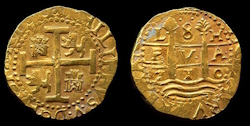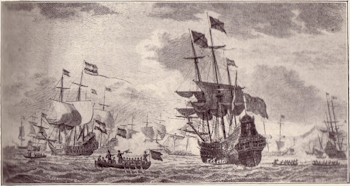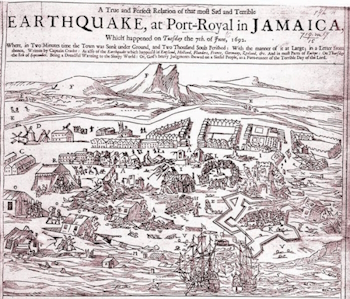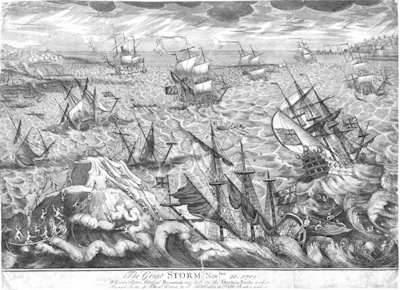 By the time the Great Fire occurred, London was by far the largest city in England. Its inhabitants numbering between 300,000 and 400,000, it had become a crowded, unregulated sprawl of houses. This wasn’t the first large scale fire, the city having experienced several major fires in the past, the most recent having been in 1633. Additionally, London had been hit by an epidemic of bubonic plague called the Great Plague of London only the year before, during which between 60,000 and 100,000 are thought to have died. As well as disease, fires were always a danger in a city made mostly of timber and tar paper. There were so many possible causes: fireplaces, candles, ovens, lamps, as well a large stores of combustibles such as pitch and hemp. To combat the perpetual danger, there were watchmen, also known as bellmen, who patrolled the city at night, who sounded the alarm should a fire break out.…
By the time the Great Fire occurred, London was by far the largest city in England. Its inhabitants numbering between 300,000 and 400,000, it had become a crowded, unregulated sprawl of houses. This wasn’t the first large scale fire, the city having experienced several major fires in the past, the most recent having been in 1633. Additionally, London had been hit by an epidemic of bubonic plague called the Great Plague of London only the year before, during which between 60,000 and 100,000 are thought to have died. As well as disease, fires were always a danger in a city made mostly of timber and tar paper. There were so many possible causes: fireplaces, candles, ovens, lamps, as well a large stores of combustibles such as pitch and hemp. To combat the perpetual danger, there were watchmen, also known as bellmen, who patrolled the city at night, who sounded the alarm should a fire break out.…
Category: Natural disasters
Lost Spanish treasure fleet 1715
 On 31st July 1715 a Spanish treasure fleet sank during a hurricane off the east coast of Florida. It was a catastrophe for the Spanish Crown, which was heavily relying on its cargo. The galleons were fully loaded with precious cargoes of gold, silver, jewellery, tobacco, spices, indigo, cochineal etc. The Spanish government was relying its the safe arrival, as the War of Spanish Succession, which had hindered the sailing of the treasure fleets, had just come to an end. For obvious reasons, this disaster awoke the interest of pirates, privateers, and honest seamen alike.
On 31st July 1715 a Spanish treasure fleet sank during a hurricane off the east coast of Florida. It was a catastrophe for the Spanish Crown, which was heavily relying on its cargo. The galleons were fully loaded with precious cargoes of gold, silver, jewellery, tobacco, spices, indigo, cochineal etc. The Spanish government was relying its the safe arrival, as the War of Spanish Succession, which had hindered the sailing of the treasure fleets, had just come to an end. For obvious reasons, this disaster awoke the interest of pirates, privateers, and honest seamen alike.
The Spanish treasure fleets
 Treasure fleets consisting of a dozen or more ships used to sail from Cádiz or Seville in Spain, bringing European goods not readily available in the New World to the colonies with the aim of returning with gold, silver and other goods from Peru and Colombia, as well as spices and other items from south east Asia, brought across the Pacific by the Manila Galleon, which was then transported by mule train across the isthmus of Panama.…
Treasure fleets consisting of a dozen or more ships used to sail from Cádiz or Seville in Spain, bringing European goods not readily available in the New World to the colonies with the aim of returning with gold, silver and other goods from Peru and Colombia, as well as spices and other items from south east Asia, brought across the Pacific by the Manila Galleon, which was then transported by mule train across the isthmus of Panama.…
The 1692 Port Royal Earthquake
“…the great Calamity that hath befallen this Island by a terrible Earthquake, on the 7th instant, which hath thrown down almost all the Houses, Churches, Sugar-Works, Mills and Bridges, through the whole Country. It tore the Rocks and Mountains, destroyed some whole Plantations, and threw them into the Sea, Port-Royal had much the greatest share in this terrible Judgement of God.” – Dr. Emmanuel Heath, Anglican rector of St. Paul’s Church, Port Royal
 In 1692, Port Royal was the main British base in Caribbean, which had been captured from the Spanish in 1655. The town became a thriving centre of trade and privateering, but by 1692 the focus had shifted to the cultivation of tobacco and sugar cane with an increased growth in the slave trade. Port Royal was built on a peninsula off the coast of Jamaica across from present-day Kingston and was religiously and culturally very diverse. At its height in 1692, the population of the town is estimated to have exceeded 6500 inhabitants, of which about 2500 were slaves.…
In 1692, Port Royal was the main British base in Caribbean, which had been captured from the Spanish in 1655. The town became a thriving centre of trade and privateering, but by 1692 the focus had shifted to the cultivation of tobacco and sugar cane with an increased growth in the slave trade. Port Royal was built on a peninsula off the coast of Jamaica across from present-day Kingston and was religiously and culturally very diverse. At its height in 1692, the population of the town is estimated to have exceeded 6500 inhabitants, of which about 2500 were slaves.…
The Great Storm of 1703
“No pen could describe it, nor tongue express it, nor thought conceive it unless by one in the extremity of it.” – Daniel Defoe, The Storm
 The Great Storm, a force two hurricane with wind speeds of up to 95 miles per hour, hit the south of England and Wales on 26th November 1703, the strong winds finally abating on 28th November. The Church of England declared that the storm was God’s retribution for the sins of the nation and it couldn’t have hit at a worse time. That year saw the greatest concentration of both naval and merchant shipping on the British coast to that date. Due to The War of Spanish Succession merchant ships were forced to travel in escorted convoys for safety against the attacks of French privateers. Three such convoys were anchored in Milford Haven, the Kentish Downs, and the estuary of the Humber when the storm hit.…
The Great Storm, a force two hurricane with wind speeds of up to 95 miles per hour, hit the south of England and Wales on 26th November 1703, the strong winds finally abating on 28th November. The Church of England declared that the storm was God’s retribution for the sins of the nation and it couldn’t have hit at a worse time. That year saw the greatest concentration of both naval and merchant shipping on the British coast to that date. Due to The War of Spanish Succession merchant ships were forced to travel in escorted convoys for safety against the attacks of French privateers. Three such convoys were anchored in Milford Haven, the Kentish Downs, and the estuary of the Humber when the storm hit.…
